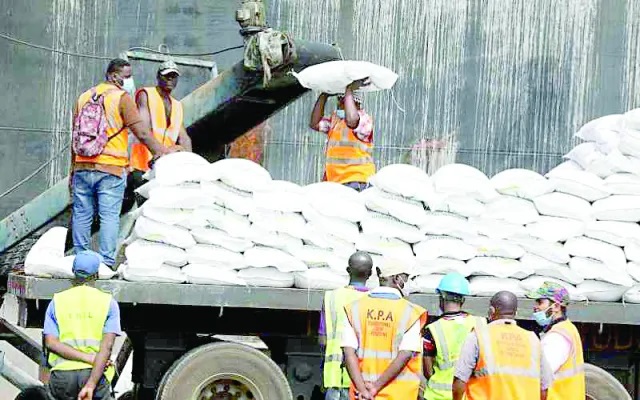Fake fertiliser scandal reveals depth of graft rot

Recent uproar surrounding Kenya’s counterfeit fertiliser scandal serves as a reminder of the challenge the country faces in combating corruption.
This scandal further exposes a pervasive issue that, if left unaddressed, will undoubtedly impede economic growth and development.
As author Ken Poirot astutely notes, “wherever there is power, greed, and money, there is corruption.” Unfortunately, this sentiment resonates deeply with Kenya’s reality.
It is unfortunate that for decades, Kenya has been besieged by one mega-corruption scandal after another, resulting in the loss of billions of dollars through illicit deals across critical state departments.
From the National Youth Service to the Kenya Pipeline Company, from the National Cereals and Produce Board to the National Health Insurance Fund (NHIF), and even questionable land transactions at the Ministry of Lands, corruption has permeated every level of governance.
Despite the government’s claims of zero tolerance for corruption, the reality on the ground paints a different picture. Corruption seems to be proliferating at an alarming rate, with a growing list of scandals, including the multi-billion KEMSA scandal, the sugar importation scam, the edible oil scandal, and now this fertilizer debacle.
Such rampant corruption not only erodes public trust but also discourages foreign investment.
American firms have already voiced concerns, reporting that they are losing business opportunities and contracts in Kenya due to demands for bribes from top government officials.
A report from the US trade office warns that corruption will deter foreign investment in the country. Senior officials allegedly seek bribes before awarding government contracts, leading to contracts predominantly being awarded to foreign firms willing to pay bribes. This level of corruption not only harms the economy but also risks deterring future investment from businesses and countries that condemn corrupt practices.
It is worthy reminding the nation that analyses have shown a negative correlation between the prevalence of corruption and both investment levels and economic growth.
As corruption increases, investment decreases, leading to slower economic growth. This vicious cycle perpetuates poverty and inequality, hindering the country’s overall development.
In the recent fertiliser scandal, Agriculture Cabinet Secretary Mithika Linturi’s denial of the existence of fake fertiliser in the country and attempts to downplay the issue demonstrate the disdain some officials have towards citizens. Needless to say, such actions undermine public confidence and further exacerbate the problem.
Fundamental questions arise about the acceptability of providing substandard goods to consumers and the lack of accountability for those involved in the scam. The Ethics and Anti-Corruption Commission’s emphasis on the need for transparency, accountability, and public participation in government projects underscores the systemic nature of corruption in Kenya.
The fertiliser scheme, which is closely linked to a donation from Russia to bolster agriculture, highlights the complexities of corruption within the government. That is why concerns abound that despite the scandal, the government has proceeded with the distribution of a second consignment of fertiliser from Russia. Close monitoring and scrutiny of this consignment is essential to prevent further repercussions.
So as to address the scourge effectively, accountability measures must be enforced, and stolen public funds must be recovered and those fingered must face the law.
Only then can Kenyans begin to take their government seriously and rebuild trust in the institutions meant to serve them.
Quick action be taken swiftly to root out corruption and pave the way for a more transparent and accountable governance system. Time is of the essence.
—The writer is the Business Editor, People Daily












